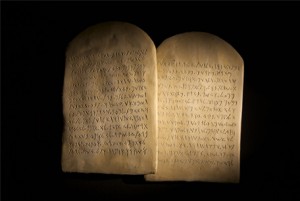Come up to the mountain and stay there. God said that to Moses. But what does that mean for you and me? A lot, as it happens. Like listening, obeying, waiting . . . and possibly some spiritual tightrope-walking to boot.
© desireofmysoul.faith & SoulBreaths.com. All rights reserved.
READING TIME: 4 MINUTES.
Sswimming in God’s murmuring deep . . . that’s the real desire. Speaking with Him soul to soul. Listening for our Redeemer’s stilled, small voice.
But I’ll be honest—there’s a cost. A wrestling within. An off-the-grid trek. Taking you beyond your version of things to a place guaranteed to ruffle your comfy feathers.
When His voice calls you to go higher so you can go deeper, it’s not about pitching your tent in the lower mountain places. Because a change in the physical moves the spiritual . . . and a shift in the spiritual births breakthrough in the physical.
Soaking in His presence is the launching pad: separating time (marking it as holy, set apart for Him) , moving away from the world’s noisy, pushy, self-focused gravitational pull, so you can drink in God’s ways, and then drink in, drink in, and drink in even more.
Here’s a quick story of what my friends and I experienced via a surprising God-move that caused us to wrestle through the process as it took us individually to new territory in Him.
STEPPING ONTO THE FAITH HIGH WIRE:
THE MOSES MOUNTAIN
The Lord had led three of my friends and me on a joint spiritual journey a ways back—in a year filled with steeped-in-His-presence lessons that, personally speaking, catapulted my walk into new directions on many levels.
It all started with our hanging out at His well (in prayer, seeking His face, desiring to go deeper). Although we had different backgrounds and approaches, we were one in Messiah, Jesus, honoring God and His Word.
We had agreed to meet weekly via phone for prayer and subsequent God-called fasts. The actual parameters of each fast differed and intensified per the individual intercessor—but the leading of the “when” and the “how long” always fell in absolute unison.
The Lord had impressed on me that parts of my fast would last more than an appointed number of days—they would become integral to my way of life going forward.
Throughout that first year, we had ascended from group prayer time to a higher level of God-led intercession and onto prophetic intercession, visions or words given, hearing His voice of what to say or do (or not) as we spiritually swam in His murmuring deep.
Adonai said to Moses, “Come up to me on the mountain
and wait there . . . Then Moses went up the mountain,
and the cloud covered the mountain. —Exodus 24:12-15
Key point: Trust God to steady your walk on those faith-led high wire paths. Listen to Him—obedience is birthed out of love for Him . . . and forges a closer relationship with Him.
THE SHIFT
On May 25, 2009, we’d entered our regular time for intercession via phone. But there was nothing typical about this special God encounter.
We started with worship and praise as individually led.
But then . . . without any of us discussing it or sharing what we were experiencing at that moment, we simultaneously entered a stillness.
Not a word voiced.
His Spirit had fallen over us, silenced us, and impressed on us individually not to speak.
My soul, wait in silence for God alone,
because my hope comes from him.—Psalm 62:5(6).
We’d learned from prior group experiences to hear and heed. And now we were taking a mini test.
Would we obey even if we felt the need in the natural to speak or explain? I have to tell you, despite prior learning to follow His lead, my mind still had moments of wondering . . .
Am I the only one hearing this? (Nope, as it turned out.)
Did my phone drop the call? (Not in the least.)
Should I explain what He’s directing me to do? (Nope again . . . this was a faith test for each of us.)
Despite each question I wrestled with in the natural, my soul was at peace with the stillness, marveling at it and sensing things from Him through it. And He assured me, impressing on me to not be concerned about explaining things to the others but to remain silent, still, and wait.
At one point, the Lord highlighted my dog, a sweet-but-feisty English Cocker (Avigail) who was lying calmly at my feet through it all. God was affirming His lesson . . . just relax, trustfully wait, rest in Him, something like the restful devotion my dog was giving me.
At first, I wrestled against natural inclinations and waited (and then waited even more), humbled by His His divine royalty, powerful presence, authority, and love.
Three to three-and-a half hours later . . . He lifted the silence.
Amazing.
We all had remained on the phone in obedient stillness, not knowing what our intercessory partners were thinking, doing, or if they had hung up or given up.
All we had was our personal command for silence before Him. The wrestling through it all was similar, but the lessons may have been different.
Why three plus hours? Don’t know. But what I can share is two things.
We had transitioned into a whole new level.
No longer pitching our tent in the low places.
We were learning (by His grace) to go farther up the mountain.
Closer to Him, deeper in Him, trusting the climb.
Trusting the silence, the unexplainable, the waiting . . .
Obediently resting in His Presence,
in His holy bridal chamber.
HE alone is KING . . . the GREAT I AM.
HE always WAS and always WILL BE.
AND THAT SECOND TAKEAWAY?
After the Lord had broken the silence, my intercessory partners immediately asked, “What was that?” and started sharing the experiences and wrestlings they’d had during the wait.
Here’s what God had imparted to me during those hours and what I basically had shared with them:
He is King. K-I-N-G. Yes, we have access to His Holy throne room through our Messiah—but He wanted to take us to another level of His Lordship, majestic royalty . . . not move in presumption.
Similar to ancient days of earthly kingships, He wanted us to bow to His Lordship and obey . . . speaking only when He, the King, directed. And in that time of silently waiting for His nod to speak, we were to rest attentively to hear His voice within our souls.
How does that roll? Well, if you’re willing to surrender to His lead to get your spiritual ears recalibrated, there will be times when He’ll direct you to sit before Him and learn by just being in His Presence.
Other times, He’ll direct you to only worship Him—no prayer lists, not even a deeper-level intercession. But what songs would He like to hear—something honest and spontaneous from your soul, a melody from His heart to yours, or a worship song you often sing?
Or He may not want songs or soulful melodies but instead desire praise and thanksgiving. Or He could lead you into intercession where you’ll speak His Words, often praying from scripture, doing battle on behalf of others, world events, things to come according to what He is showing you.
There will be times for prayer lists/requests/concerns, but He just might want you to set all that aside, trusting that He knows the list, and instead go higher on the mountain, spending that time solely loving on Him.
PHOTO CREDITS
Woman with backpack facing wilderness mountains by Jason Blackeye on Unsplash.com
Feet on a tightrope photo by Barguti on iStock (Stock photo ID:158772733)
Whisper photo by Kristina Flour on Unsplash.com







